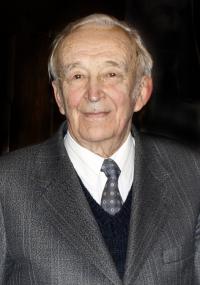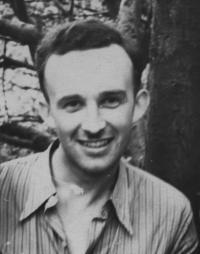Незважаючи на все пройдене нами митарство, ми ніколи не жаліли
Народився 1925 р. у Львові. Початкову освіту здобув у Рідній школі ім. Князя Льва. У 1937-1943 рр. навчався у Державній академічній гімназії з українською викладовою мовою у Львові. З 1942 р. - член Юнацтва ОУН. В 1943 р. вступив до Львівського медінституту. У 1944 р. в помешканні на вулиці Курковій, 40 (тепер вулиця М. Лисенка) організував одну зі зв’язкових “хат” головного командира УПА, генерал-хорунжого Романа Шухевича (Тараса Чупринки). В ніч з 20 на 21 грудня 1946 р. радянські каральні органи забрали Любомира з дому, однак йому вдалося втекти. Наприкінці 1946 р. в Дашаві на Стрийщині організував підпільно-конспіративну хату. На початку 1947р. переведений у штабну конспіративну хату в с. Княгиничі Рогатинського р-ну. Був зв’язковим і охоронцем Романа Шухевича. З 1947 р. перебував у підпіллі. 23 вересня 1947 р. тяжко поранений, затриманий співробітниками МГБ. Протягом 18 місяців був під слідством у тюрмах в Рогатині, Станіславові, Києві та Львові (в тюрмі на Лонцького). Покарання відбував у лагерях ГУЛАГу, зокрема у місті Інта (Комі АРСР). Звільнений 19 грудня 1955 р. Після звільнення з таборів у 1957 р. завершив медичну освіту в Семипалатинському медінституті (Казахстан). З 1961 р жив у Цурюпинську (Олешках). З 2001 р. мешкає у Львові.


